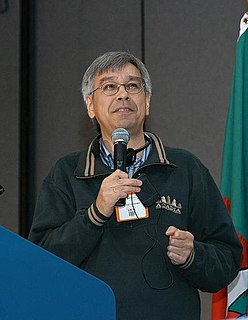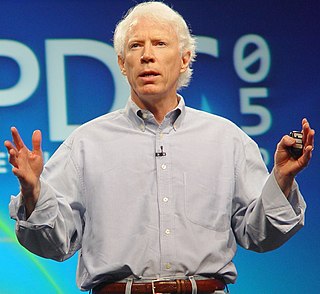A Quote by Bjarne Stroustrup
There is no one "root of all evil" in software development. Design is hard in many ways. People tend to underestimate the intellectual and practical difficulties involved in building a significant system involving software. It is not and will not be reduced to a simple mechanical "assembly line" process. Creativity, engineering principles, and evolutionary change are needed to create a satisfactory large system.
Quote Topics
Assembly
Assembly Line
Building
Change
Create
Creativity
Design
Development
Difficulties
Engineering
Evil
Evolutionary
Hard
Intellectual
Involved
Involving
Large
Line
Many
Mechanical
Needed
People
Practical
Principles
Process
Reduced
Root
Satisfactory
Significant
Simple
Software
Software Development
System
Tend
Underestimate
Ways
Will
Related Quotes
I'm not of the opinion that all software will be open source software. There is certain software that fits a niche that is only useful to a particular company or person: for example, the software immediately behind a web site's user interface. But the vast majority of software is actually pretty generic.
In science, the whole system builds on people looking at other people's results and building on top of them. In witchcraft, somebody had a small secret and guarded it - but never allowed others to really understand it and build on it. Traditional software is like witchcraft. In history, witchcraft just died out. The same will happen in software. When problems get serious enough, you can't have one person or one company guarding their secrets. You have to have everybody share in the knowledge.
It has long been my personal view that the separation of practical and theoretical work is artificial and injurious. Much of the practical work done in computing, both in software and in hardware design, is unsound and clumsy because the people who do it have not any clear understanding of the fundamental design principles of their work. Most of the abstract mathematical and theoretical work is sterile because it has no point of contact with real computing.
If you depend on a secret for your security, what do you do when the secret is discovered? If it is easy to change, like a cryptographic key, you do so. If it's hard to change, like a cryptographic system or an operating system, you're stuck. You will be vulnerable until you invest the time and money to design another system.
Testing by itself does not improve software quality. Test results are an indicator of quality, but in and of themselves, they don't improve it. Trying to improve software quality by increasing the amount of testing is like trying to lose weight by weighing yourself more often. What you eat before you step onto the scale determines how much you will weigh, and the software development techniques you use determine how many errors testing will find. If you want to lose weight, don't buy a new scale; change your diet. If you want to improve your software, don't test more; develop better.



































